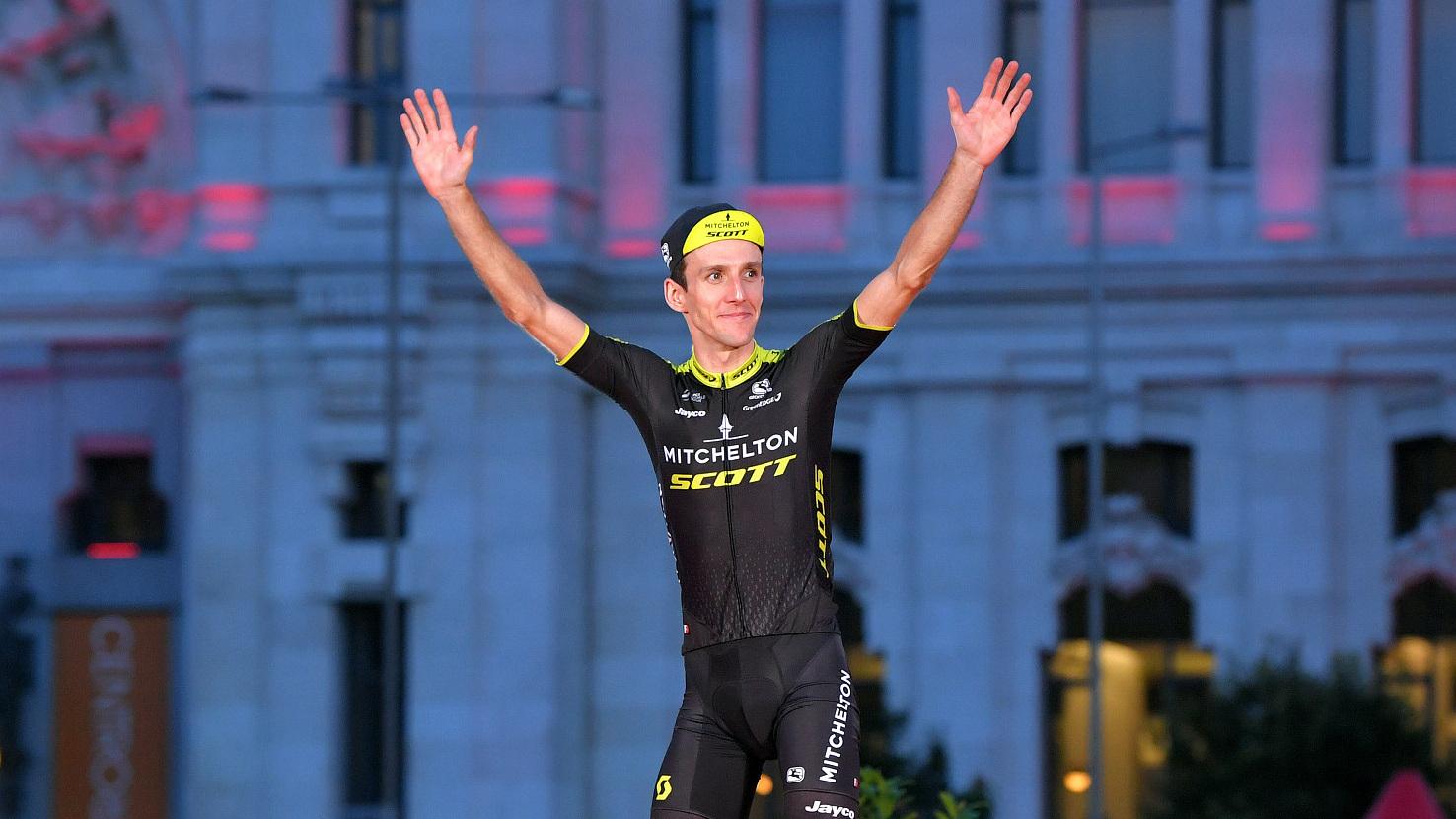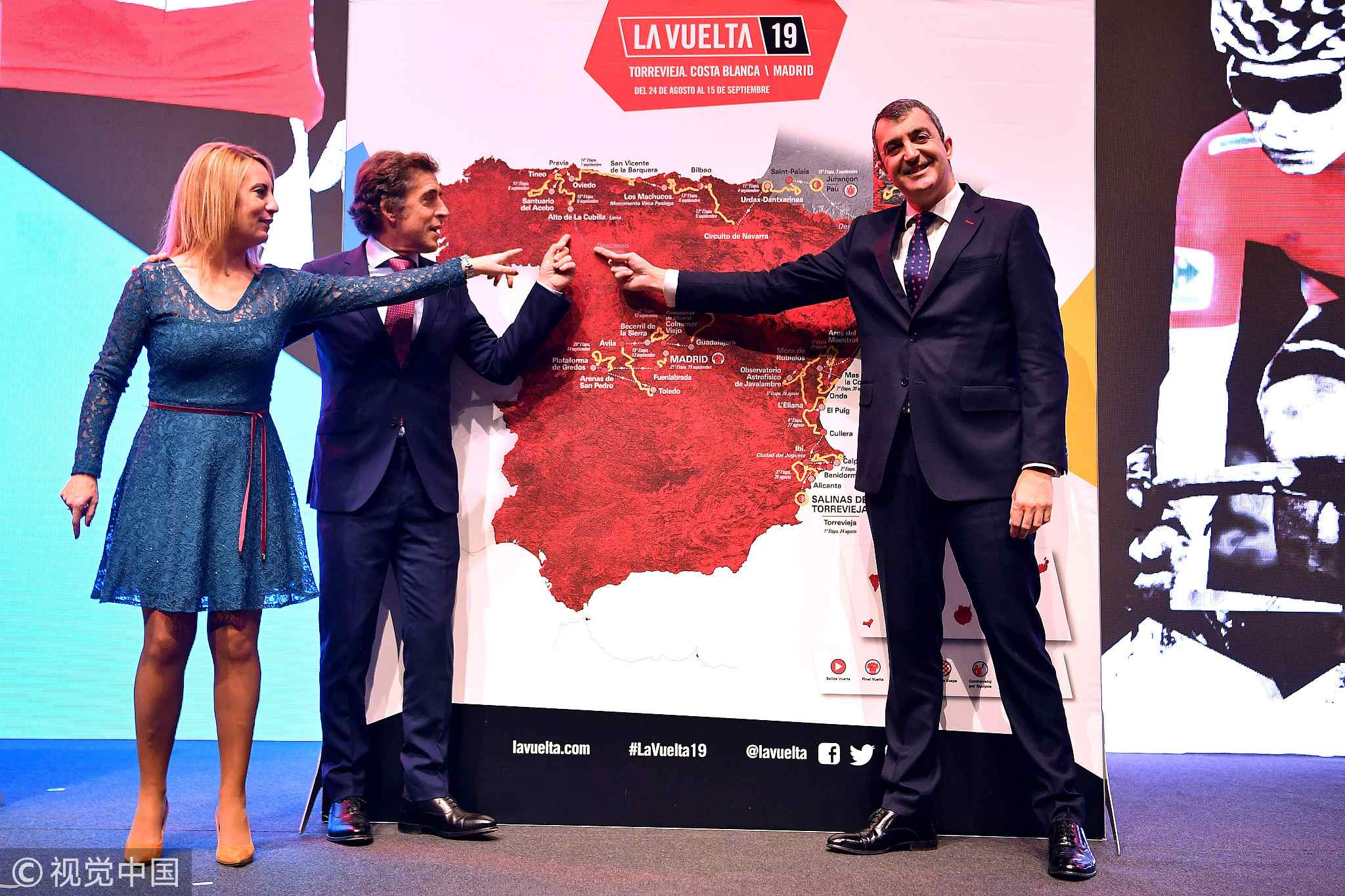
Sports
17:17, 20-Dec-2018
Cycling: Simon Yates unsure about Vuelta defense as 2019 route unveiled
Updated
17:05, 23-Dec-2018
CGTN

Vuelta a Espana champion Simon Yates said he was undecided about whether to defend his crown next year after the 2019 route was revealed in Alicante on Wednesday.
The Mitchelton-Scott rider became only the second Briton to win the Vuelta when he claimed the red jersey this year.
Although he did not rule out taking to the start line in Torrevieja on August 24 for a team time trial, Yates has new goals for the year.
"I don't know if I'll be back at the Vuelta. Right now, the first and primary objective for the year is the Giro d'Italia and I'm only thinking about that," he said.
"When the Giro finishes then I'll plan the rest of the season and we'll see if I finish that feeling good."

Britain's Simon Yates attends the 74th Tour of Spain 2019 Route Presentation in Alicante, Spain, December 19, 2018. /VCG Photo
Britain's Simon Yates attends the 74th Tour of Spain 2019 Route Presentation in Alicante, Spain, December 19, 2018. /VCG Photo
Not as tough as previous Vuelta courses, there is something for all types of riders, with eight mountain top finishes – one fewer than last year – a team time trial, an individual time trial and seven sprint stages.
The race begins in the Costa Blanca on August 24 and the potentially decisive first 10 days see three consecutive summit finishes as La Vuelta heads up the first category Javalambre Observatory in Aragon for the first time on stage five.
The race moves through Valencia, Aragon and Catalonia to Andorra, with a punishing stage nine - which includes a section of off-road racing - ending a tough opening period which finishes atop the brutal Alto els Cortals d'Encamp climb.

The unveiling of the 74th Tour of Spain 2019 Route, Alicante, Spain, December 19, 2018. /VCG Photo
The unveiling of the 74th Tour of Spain 2019 Route, Alicante, Spain, December 19, 2018. /VCG Photo
Spaniard Enric Mas, runner-up to Yates this year, is expecting a new challenge.
"I like the route, it's tough but also different to what we're used to from the Vuelta, and that's going to be very attractive for cycling fans," said Mas.
"The climbs are different to other editions because they're longer and not as explosive," he added.
The only individual race against the clock comes after the Andorran queen stage, with riders setting off from Jurancon in France on a 36.1-kilometer course that is unlikely to prove decisive in the general classification battle.
The course heads along the northern Spanish coast through the Basque country, with stage 13 taking in seven climbs.
Breaking with tradition, riders get some respite in the final week, with the closing stages not as punishing as normal for a grand tour.
The race finishes with the customary sprint down the Paseo de la Castellana in Madrid on September 15.
Source(s): Reuters

SITEMAP
Copyright © 2018 CGTN. Beijing ICP prepared NO.16065310-3
Copyright © 2018 CGTN. Beijing ICP prepared NO.16065310-3